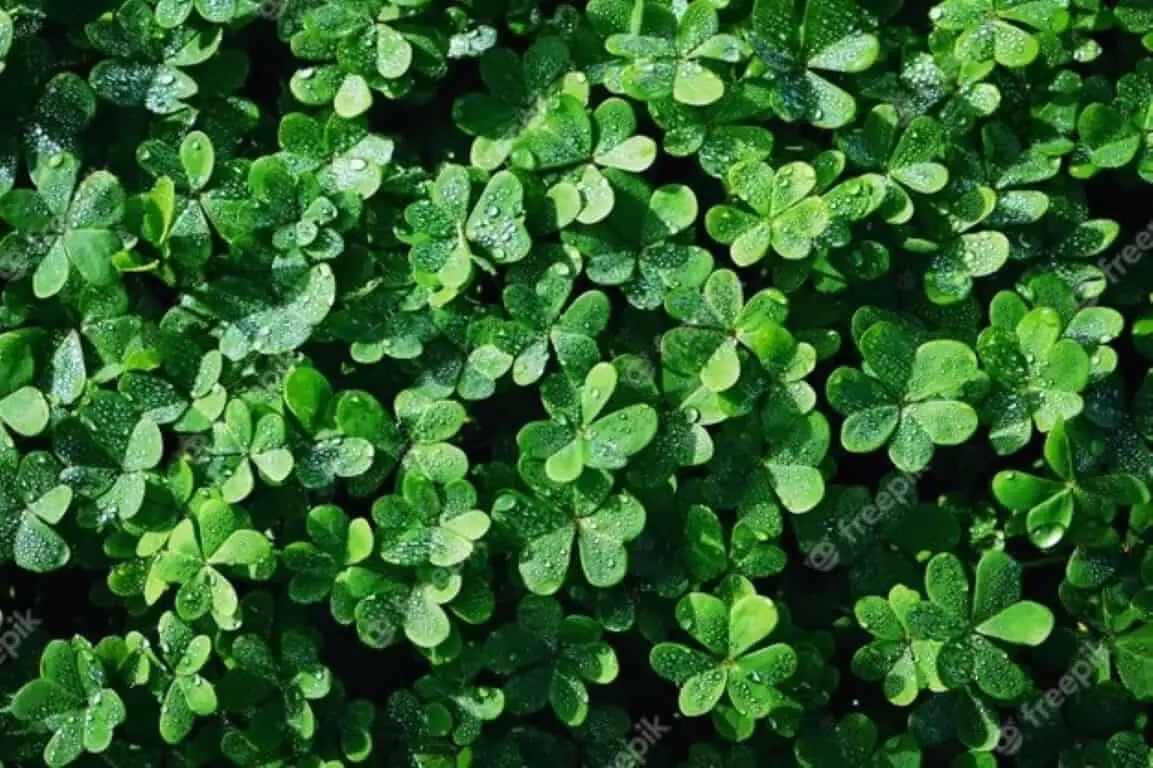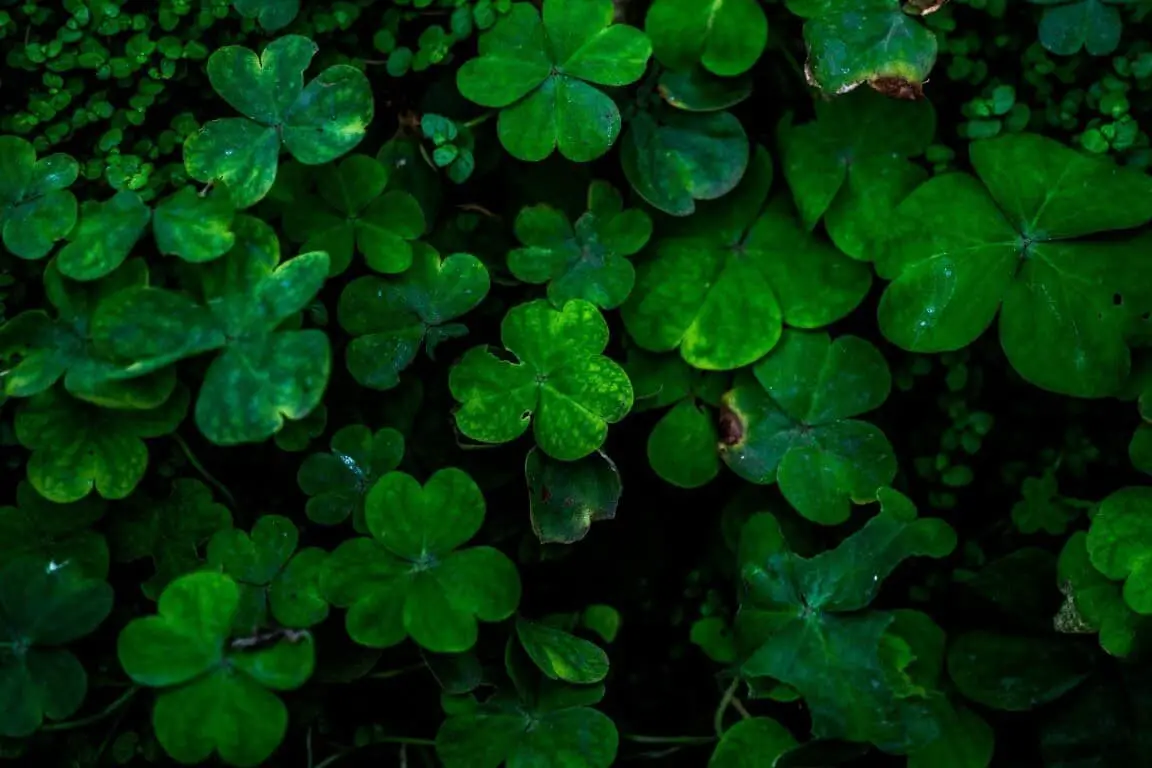Contents
If you love your lawn looking all green, then you’ll probably not be a fan of clover. Clovers are herbs with toothed leaflets. These leaflets could be three or four in number. Although clovers are beautiful, fragrant, and somewhat beneficial, it is a nightmare to get rid of. It’s essentially a weed that sprouts on your lawn. In this article, I’ll be discussing some of the surest methods with which you can get rid of them.

Ways to Eliminate Clover
If you scour the internet, there are so many options available, and you might get confused by which method will be the most effective. In this segment, we’ll discuss the simplest and most effective ways that you could use. Your success is just a matter of seeing any of these processes through.
Eliminating Clover Manually
This is probably the oldest method available, but it is still as effective as any new method. When you’re manually picking clover off your lawn, the most important thing is to make sure you remove all the roots. For the best results and to help minimize the stress, you should do this early. Once you begin to notice the growth of clover, pick it off and don’t give it a chance to spread. Just use your hands to loosen the soil around the clover and pull out the cluster. The major flaw of this technique is that it won’t stop clover from growing again. So the next time you notice clover, you’ll have to repeat the process.

Making Use of Nitrogen
Nitrogen is an essential element for plant growth, and it’s beneficial to the grass on your lawn. However, it’s dangerous to clover and is known to kill off the weed. In addition, clover can only grow in the absence of nitrogen. Hence, the use of nitrogen on your lawn serves as a preventive measure against the growth of clover.
Monitor the soil and top up its nitrogen levels when necessary. It is just as effective when clover is already growing, as once nitrogen is present in the soil, any clovers will wither and die. After this occurs, remove the dead clover from the lawn. This method is biological and requires less stress, but you will need to be careful not to overflood the soil with nitrogen.
Oxygen and Sunlight Deprivation
Oxygen and sunlight are two of the major requirements for most plants, and clover is no exception. In the absence of either or both of these factors, clover will die. This biological method is simple and may cost you nothing to implement. Cover the clover, sealing off any air access, ensuring the material used can also block out sunlight, e.g., a garbage bag. Leave the cover for a few weeks, and this should cause the clover to die off. This method is very effective but is not without its shortcomings. You should only make use of this method where clover grows in large patches. If you apply this to small clover patches, you will likely lose some of your grass as well.
Make Use of Corn Gluten
Corn gluten use is another biological method that kills clover without any collateral damage. Corn gluten meal acts by releasing peptides that are harmful to clover into the soil. However, these peptides are also beneficial to grass, helping and improving grass growth. The only downside of this method is that it may not be cheap, and in some cases, it isn’t readily available at stores. The peptides released by corn gluten act by causing the clover seeds to dry, killing them at the root. For the best results, spread about 20 pounds of corn gluten on a 1000 square feet lawn, or maintain the ratio. After applying the corn gluten, water the lawn and then allow it to dry. The corn gluten will begin to work after that.
Use Homemade Weed Killer
This is also a cheap and effective biological method to eliminate the clover on your lawn. Weed killers can be a great choice, but in most cases, they are expensive. With a homemade weed killer, you will not only spend little or no money, but some of the items can be found in your home. A straightforward weed killer recipe is a mixture of dish soap and vinegar. After making the mixture, apply it directly to the clover taking care not to apply it to the surrounding grass. You may use a spray bottle to apply the mixture as it provides a degree of accuracy.
Make Use of Herbicides
Herbicides are probably the most common treatment method to eliminate weeds. They are many herbicides available, but broadleaf herbicides are best suited for removing clover. Herbicides are formulated to kill weeds alone, so the surrounding grass will probably be fine. However, some other beneficial plants and insects could be harmed by herbicides. Therefore, ensure you apply herbicides directly to the clover. Herbicides have several ways to kill weeds, such as causing the stems to break or closing the petals. After using the herbicide, you should begin to notice some of these signs indicating the death of the clovers.
Make Use of Watering Techniques
This method won’t cost you any extra money but may require a lot of precision. Both the grass and weeds need water to grow, and when water is abundant, both will thrive. You can therefore limit the growth of weeds by limiting the amount of water in the soil. Water the ground per the plant’s needs rather than at a regular schedule. This will ensure the water level competition is high and the grass should win out.
You could choose to use any of the above-listed methods individually, or you could combine them to achieve more effective results. Trust the process and follow it religiously.
Want to know more about gardening ?
Fill in your email address in the form below and you'll receive all the latest updates directly in your in-box.
Thank you for subscribing.
Something went wrong.